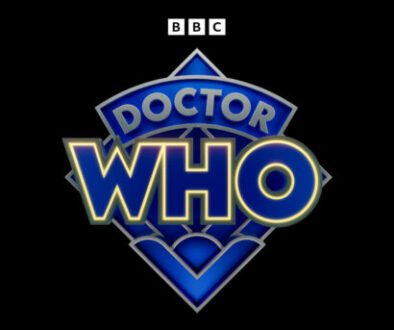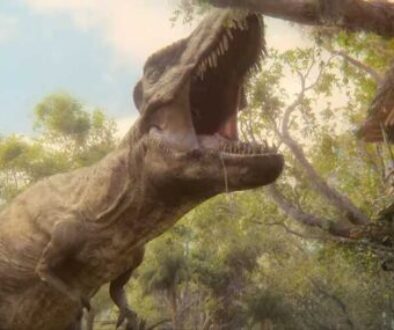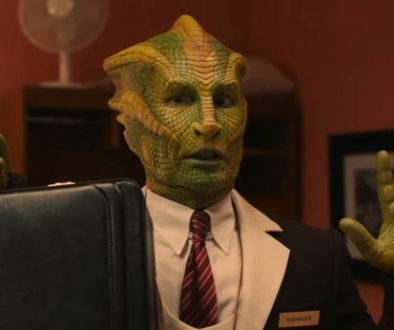Doctor Who – “Space Babies” Review – It’s Not NOT ‘Snot’
Clint Hassell gives his SPOILER-filled commentary on the first episode of Series 14.

Note: this review contains full SPOILERS for episode 1 of Series 14.
In golf, a “bogey” is when a player needs one more stroke than par to land the ball in the hole, thus coming up just short of the set goal. This is apropos of “Space Babies,” the first episode of Series 14 which underwhelms with its thin plot and is bolstered only by the buoyant chemistry between the show’s leads, Ncuti Gatwa and Millie Gibson.
Showrunner Russell T Davies’ script starts from the final scene of “The Church on Ruby Road” and quickly recaps the basic premise of the program. Key points including the TARDIS and its police box disguise, the name of the Doctor, the Timeless Child plot line, the genocide on Gallifrey, and the Doctor being the “last of the Time Lords” are all summarized in less than four minutes. Included as a primer for new viewers, the exposition contains all the necessary information, but lacks the narrative drive to be engaging. Part of the excitement that comes with a new companion is living vicariously through them as they learn what it is to travel with the Doctor. Here, that sense of wonder is negated by a four-minute info dump.


In a scene that references “The End of the World,” Ruby sees the colony planet Pacifico Del Rio from space and sees first-hand how the TARDIS’ perception filter functions as a translation circuit. The Doctor adapts Ruby’s mobile phone to a “superphone,” allowing her to call her mother on Earth, more than 213,000 years in the past. However, unlike “The End of the World,” which uses a similar scene to explore the existential crisis Rose experiences at realizing how small she is in comparison to the entirety of Earth’s history, the moment here does little more than cameo Carla and remind the audience of Ruby’s origin in “The Church on Ruby Road.” Davies changed Doctor Who for the better when he switched the focus of the series from the titular Time Lord to the companion characters, and he has excelled at writing compelling mothers into the narrative. Still, as charming as Carla and Cherry Sunday are, they have yet to be given the depth or agency of Jackie Tyler, Francine Jones, or Sylvia Noble—characters referenced when the Doctor calls out, “Tell your mom not to slap me!”

As many narrative points as “Space Babies” repeats, the episode does depart from established lore in one significant way. When asked about his motivation, the Doctor responds that he has “no job, no boss, [and] no taxes or rent or bills to pay,” and even denies having a “cause or a mission.” How times have changed! Previous companions were beckoned by the call of adventure, the opportunity to experience more out of life than would be afforded to them in their station on Earth. “Space Babies” posits that Ruby is lured by the chance to escape the realities of adult life. While this message surely calls to the overworked adults in the audience who look to the series as an escapist fantasy, it infantilizes the companion characters, resulting in juvenile storylines. “Space Babies” certainly capitalizes on this promise, with Ruby herself describing the adventure as “a children’s story, come to life.” Does the audience really know this new Doctor Who?
Further, does this audience really know this new Doctor Who? While Fifteen unsurprisingly takes on yet another “mystery girl” companion—à la Amy, Clara, and River—and expectedly touts tolerance and exploration of the unknown, stating, “There’re no such things as ‘monsters’—just creatures you haven’t met yet,” the Doctor also flees in terror from the Bogeyman. The episode offers an in-narrative reason for the Doctor’s uncharacteristic behavior, but it still begs the question: how much of the Doctor’s personality was bisected away in “The Giggle”?


Just as the Doctor and Ruby are forced to reconsider their definition of a “monster,” Davies’ script deftly mines the current political environment for a unique character moment:
Ruby: “The planet down below refused to stop the babies being born, but once they’re born, they don’t look after them?”
Jocelyn:“It’s a very strange planet.”
Ruby:“It’s not that strange.”
Great science fiction uses its fantastical premise to examine some facet of the human condition. Here, Davies parallels political groups that advocate for the rights of unborn children while simultaneously undermining public health programs, school funding, and social services that would help these same children once they are born. “Space Babies” toddles a fine line of asking the audience to consider the conundrum without necessarily taking a side. Ruby merely admits that the situation is not unique to Pacifico Del Rio, creating a twist on a common trope: Ruby and Jocelyn are able to relate to one another not because the human race survived, but because some of humanity’s current social ills did.
Random Musings


(Time) Capsule Review
Burdened by exposition that lacks the organic agency to interest long-time viewers and a plot so simple that even the titular space babies recognize the “right” thing to do, the premiere episode of Series 14 does little to engender an expanded audience to Doctor Who. While the script fails to capitalize on Davies’ strength of well-written companion mothers, reduces Ruby to a “mystery girl” trope, and proffers an escapist reason to travel with the Doctor that departs from established lore, the episode skillfully references current social debates in a manner that invites audience introspection, not ire.
If you’d like to interact with the author of this article, follow him on Twitter @ClintHassell.








